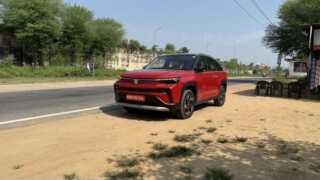- A new Republican tax bill passed by the U.S. House on Thursday under the name “One Big Beautiful Bill Act” has the potential to devastate electric vehicle sales in the U.S. The bill now goes up for a vote in the Senate at an as yet unannounced time.
- If passed into law, the bill would gut subsidies for battery manufacturing and would remove incentives for purchasing plug-in hybrid and electric cars.
- The bill would also impose new registration fees of $100 and $250 on hybrid and electric cars, respectively.
After months of stating the intention to remove clean-vehicle tax credits, Republican House members have passed a version of President Donald Trump’s “One Big Beautiful Bill Act” that could potentially decimate electric vehicle sales in America. If passed into law, the bill would cut subsidies for battery manufacturing and remove incentives for purchasing electrified vehicles. Hyundai2026 Hyundai Ioniq 9.Specifically, the bill would phase out the Clean Vehicle Credit, first put in place under President Barack Obama and expanded in the Biden administration through the Inflation Reduction Act. Currently, buyers of hybrid and electric cars can get $7500 off qualified new vehicles with restrictions based on vehicle price and household income. The new bill would officially end the clean-vehicle credit program on December 31, 2026. In practice, though, the credit would be effectively killed for nearly all established automakers at the end of this year. That’s because the bill stipulates that for any automaker that has sold more than 200,000 qualifying vehicles, the program ends on December 31, 2025. After They’re GoneIn addition to removing the clean-vehicle credits, the bill would add new registration fees for hybrid and electric vehicles as a stand-in for fuel taxes. Hybrid vehicles would become subject to a new $100 registration fee, while electric vehicles would add a $250 annual fee. Combined with the removal of clean-vehicle credits, the new registration fees would help to significantly raise the cost of electric vehicle ownership. A Princeton University study cited by the New York Times alleges that, should Republicans succeed in repealing the incentives, electric vehicle sales will make up just 24 percent of new car sales in 2030 in the U.S. If incentives remain in place, EV’s are projected to make up 40 percent of new car sales by the same year. Related StoriesJack Fitzgerald’s love for cars stems from his as yet unshakable addiction to Formula 1.
After a brief stint as a detailer for a local dealership group in college, he knew he needed a more permanent way to drive all the new cars he couldn’t afford and decided to pursue a career in auto writing. By hounding his college professors at the University of Wisconsin-Milwaukee, he was able to travel Wisconsin seeking out stories in the auto world before landing his dream job at Car and Driver. His new goal is to delay the inevitable demise of his 2010 Volkswagen Golf.
Source: caranddriver.com










